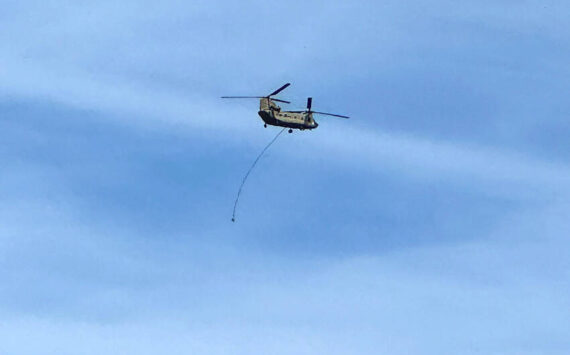NESPELEM – The Colville Tribes has filed a final brief in its latest 9th Circuit Court of Appeals battle with Teck Metals, a company which dumped toxic waste in the Upper Columbia River for decades.
In the past several years, Teck has suffered a series of losses in federal court battles with the Tribes, attempting to avoid liability for polluting the Columbia from its Trail, B.C. Smelter. In its latest maneuver, Teck asked the 9th Circuit to overturn several lower court decisions in the case. Colville filed its brief on June 30, and Teck must submit a final reply brief by August 14, setting the stage for oral argument, likely in early 2018.
The Colville Tribes and the State of Washington initially sued Teck to force Teck to participate in investigation and cleanup of the Upper Columbia in. 2008. Since then federal courts have found that Teck is liable under US environmental law and responsible for costs of investigation and any cleanup of a 150-mile stretch of the Upper Columbia River, and that the mining company and must pay the Tribes’ legal costs in the suit. Teck is appealing these decisions, as well as an award of $8.3 million in legal fees and expert costs to the Tribes, and a decision finding that Teck must pay the entire price tag for cleanup, rather than dividing these costs among other much smaller and mostly now-defunct mining operations.
“This is a very predictable pattern,” Dr. Michael E. Marchand, Colville Business Council Chairman, said today. “The Colville Tribes win in court and Teck does everything it can to delay meeting its legal and moral obligations to clean up our River.”
Teck’s lead-zinc smelter in British Columbia, the largest in the world, sits just across the US border from the Colville Tribes’ traditional territories in northern Washington. For decades Teck dumped several hundred tons per day of blast furnace slag, as well as liquid effluent into the Columbia River.
“Maybe Teck believes it can wear us down by appeal after appeal, but we will not give up,” Marchand said. “The Columbia River has always been crucial to our culture, our history, and our very survival as a people. We look forward to the day when Teck accepts its responsibility for the damage it has caused and cleanup can begin.”




